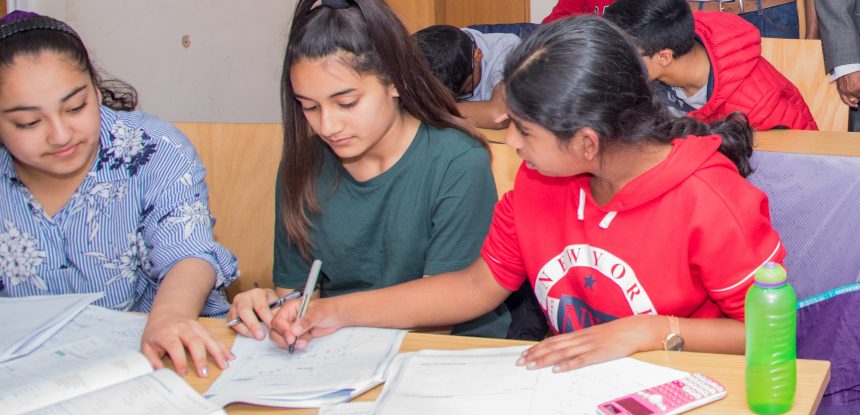Harrow Independent College (HIC) is fully committed to its responsibilities for safeguarding and child protection. We recognise that all staff members have an active part to play in protecting our students from harm. We believe that our college should provide a positive, safe and stimulating environment which promotes the social, physical and moral development of the individual students, and one in which students feel secure, are encouraged to talk and are listened to.
Safeguarding and promoting the welfare of children is defined as:
- protecting children from abuse
- preventing impairment of children’s health or development
- ensuring that children grow up in circumstances consistent with the provision of safe and effective care
- taking actions to enable all children to have the best outcomes
Safeguarding children is everyone’s responsibility. Everyone who comes into contact with children and families has a role to play in safeguarding; identifying concerns, sharing information and taking prompt action. Safeguarding encompasses the arrangements that are in place for all children. Child protection refers to the policy and procedures for children who have been significantly harmed or are at risk of harm.
HIC is committed to safeguarding children and has created a culture of vigilance in the college, ensuring that in all cases we work in the best interests of the students in our care. All staff members have a responsibility to provide a safe environment in which children can learn and our policy applies to all staff members, adults, governors and volunteers working in the college.
HIC’s Safeguarding Team
The Safeguarding Team is structured as outlined below.

- Designated Safeguarding Lead (DSL): Mrs Anishga Selvaranjan
The DSL is the main contact point for any safeguarding issues within the college. The role involves keeping up to date with legislative and administrative changes in procedures; ensuring staff are trained in aspects of safeguarding including child protection protocols; liaising with external agencies such as Local Safeguarding Council Board and health and social care professionals; working with the senior management team and Chair of Governors to ensure we are meeting the needs of all students.
Safeguarding Policy and Procedures
The Safeguarding Policy and Procedures at HIC are outlined in our Safeguarding and Child Protection Policy which is attached below. It take account of the most recent guidance Department for Education guidance – Keeping Children Safe in Education 2022.
If you are worried about a child you can call Harrow Safeguarding Children Board’s Golden Number: 0208 901 2690. The Children and Family Service out of hours number is 0208 424 0999. In an emergency call 999 immediately.
Preventing Radicalisation
Protecting children from the risk of radicalisation is seen as part of HIC’s wider safeguarding duties. We follow the Department for Education (DfE) guidance set out in Keeping children safe in education Statutory guidance for schools and colleges September 2022.
The Prevent Duty is the duty in the Counter-Terrorism and Security Act 2015 on specified authorities, in the exercise of their functions, to have due regard to the need to prevent people from being drawn into terrorism. The Prevent Duty DfE advice for schools and childcare providers, June 2015, states that, ‘School staff should use their professional judgement in identifying children who might be at risk of radicalisation and act proportionately.
Implementing Prevent Duty
There is no single way of identifying an individual who is likely to be susceptible to a terrorist ideology. As with managing other safeguarding risks, staff should be alert to changes in children’s behaviour which could indicate that they may be in need of help or protection. Members of Staff, who have concerns about a student, will make these concerns known to the DSL at the earliest opportunity. The DSL will then make a judgement as to whether or not it is appropriate to make a referral, through Harrow’s Multi Agency Safeguarding Hub (MASH) to the Channel programme. Channel is a programme which focuses on providing support at an early stage to people who are identified as being vulnerable to being drawn into terrorism.
Prevent Duty is part of the safeguarding role of our DSL. We have ensured that Prevent is embedded into all other appropriate college policies. We have clear procedures in place for protecting children at risk of radicalisation. These procedures are set out in this safeguarding policy and other existing policies where relevant.
British Values & Prevent Duty
At HIC we value the diversity of backgrounds of all students, families and the wider community.
The DfE states that there is a need:
“To create and enforce a clear and rigorous expectation on all schools to promote the fundamental British values of democracy, the rule of law, individual liberty and mutual respect and tolerance of those with different faiths and beliefs”.
The DfE defines British Values as follows:
- Democracy
- The rule of law
- Individual liberty
- Mutual respect
- Tolerance of those of different faiths and beliefs
Our college reflects British values in all that we do. We encourage our students to be creative, unique, open-minded and independent individuals, respectful of themselves and of others in our college, our local community and the wider world.
At HIC, we actively promote British values in the following ways:
Democracy
- Election of Head Girl and Head Boy.
- Student Voice is addressed through student focus groups, feedback forms and suggestion box.
- There is explicit consideration of democracy in all lessons.
- The principles of democracy are explored in the whole curriculum e.g. turn taking, sharing and collaboration, as well as during assemblies and debates.
- Achievements are celebrated both in lessons and in our Assemblies
- We promote an environment where questions are valued and encouraged.
The Rule of law
- The college’s ethos promotes and encourages respect and help students to distinguish the difference between ‘right and wrong’.
- Our Behaviour and Anti-Bullying policies set out a zero tolerance baseline for any form of aggression, abuse or violence, which extends to students, staff and parent and carers. We raise awareness of bullying by talking about Anti-Bullying in our student assemblies.
- The importance of Laws is consistently reinforced when dealing with behaviour and through student assemblies and field trips to the Houses of Parliament or speeches by professionals who deal with British Law.
Individual liberty
- We are proud of our and ethos that builds respect, tolerance and resilience.
- Both in and out of lessons, students are actively encouraged to make the right choices, knowing that they are in a safe and supportive environment.
- Students are encouraged to know, understand and exercise their rights and personal freedom and advise how to exercise these safely, for example through our E-Safety and PSHE lessons.
- We have a robust anti-bullying culture in the college.
Mutual respect
- Respect is one of the core values of our college. Our students know and understand that it is expected that respect is shown to everyone, adults and children.
- Student assemblies address what respect means and how it is shown.
- We promote respect for others and this is reiterated through our classroom and learning rules, as well as our Behaviour and Discipline and Academic Management policies.
- Both in and out of the classroom students are helped to acquire an understanding of, and respect for, their own and other opinions, cultures and ways of life.
- Staff and students are encouraged to challenge prejudicial or discriminatory behaviour. All such incidents are recorded.
Tolerance of those of different faiths and beliefs
- Discussions take place regarding prejudices and prejudice-based bullying in student assemblies.
- Members of different faiths or religions are encouraged to share their knowledge to enhance learning.
- Through PSHE lessons students are encouraged to discuss and respect differences between people, such as differences of faith, ethnicity, disability, gender or sexuality and differences of family situations.








